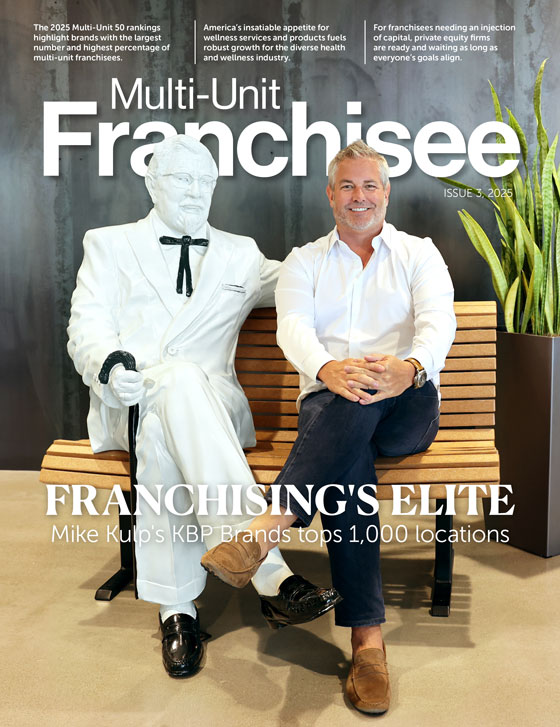Signs of the Times: Keep Your Customer Communications Friendly

Management’s paranoia that customers are out to take advantage of them is one of the most significant contributors to the customer service crisis. Companies create and enforce policies rather than creating positive customer experiences. Why do so many companies’ agreements and policies sound angry? You should be friendly to your customers in every way you communicate.
Negative cues
Medical practices are the leaders in negative cues. I checked in for a doctor’s appointment, and the receptionist said, “We need to verify your information.” “Verify” makes me feel like they don’t believe who I am. “May we update your information?” works better and accomplishes the same end goal.
Another example is when a doctor sees a patient, and a nurse enters the room and says, “Your 10:30 is here,” or “You have a call on line two.” The patient becomes convinced the doctor is rushing and more concerned with other priorities. Some medical practices have created verbal and nonverbal codes to inform the doctor without the patient realizing it.
Rule to remember: Don’t punish 100% of your customers for what you are afraid 2% might try to do.
Signage
Signage has the highest occurrence of negative cues. I have taken many pictures of crazy negative signs. What businesses put on signs amazes me. Let’s start with the most common negative signage: “We charge $20 for all returned checks,” and “We are not responsible for lost or stolen merchandise.”
The “Employees must wash hands” sign appears in the restrooms of restaurants that customers use. I used the restroom at one fast-food place to find that they had four of these signs up: One above the sink, one above the soap dispenser, one above the paper towel dispenser, and one on the inside of the door. It made me think that the establishment must have an employee sanitation problem if they needed to decorate the entire bathroom with these signs. I chose to eat somewhere else.
I understand that posting this sign is required for most restaurants, but everything can be reworded. I saw a sign in a restaurant restroom that said it this way: “Cleanliness is important to us. We wash our hands before leaving.” This is so much better.
Opposite approaches
On the register of one retailer, I read a sign that said, “We will not wait on you if you are on your cell phone while at the counter.” The business that displays this sign is frustrated and wants to teach rude and inconsiderate customers a lesson, making them ex-customers.
Brian Olson, owner of 45th Avenue Cleaners in Portland, Oregon, has taken a different approach. He displays a notepad on his counter that reads, “Don’t Hang Up!” He allows people to drop off their clothes while conveniently jotting down their names and special cleaning instructions without interrupting essential calls. Customers on their cell phones are a fact of life. He found a way to put a positive spin on it. Instead of punishing his customers, he created a system that does not ruin their productivity. It keeps customers happy and keeps them as customers!
"No" on the door
I was speaking in Fort Worth, Texas, and stopped at one of those outdoor-lifestyle shopping centers with upscale retail stores. I walked by what appeared to be a high-end wine bar, which looked fancy. When I got to the door, I was shocked to see a sign on the door that listed nine things you could not wear along with the recommended attire to enter.
Wow! Considering this shopping center’s affluent area, I don’t know what this business was worried about. The last line was all this business needed on the door: “Business casual or business attire is suggested.” I returned to the same shopping center about a year later, and that space was vacant and for lease. Big shocker—I think the business owner was focused on the wrong things.
"Be seated"
Typically, you see a sign at the entrance of many restaurants that reads, “Please wait to be seated.” I once walked into a restaurant where I was startled to see a positive cue: “It would be our pleasure to seat you.” Just the slight tweaking of the message can dramatically impact the hospitable mood your business is setting for your customer.
"Past this point"
The truck-repair service center of TravelCenters of America had a sign, “No drivers allowed past this point,” posted on the door that separated the area where the drivers waited from where their trucks were being serviced. While this policy was needed for insurance reasons, TravelCenters realized it needed to be stated better. It now says, “For your safety, if you need anything from your truck, one of our team members would be happy to assist you.”
Think again
For the following items, think of ways you can protect yourself but say it differently:
- Website
- Verbiage
- Terminology
- Signage
- What customers see
- Agreements
- Employees' actions
Many unnecessary rules, policies, and warnings do not need to punish the vast majority for what a small percentage may try to get away with.
John DiJulius III, author of The Customer Service Revolution, is president of The DiJulius Group, a customer service consulting firm that works with companies, such as Starbucks, Chick-fil-A, Ritz-Carlton, Nestle, PwC, Lexus, and many more. Contact him at 216-839-1430 or [email protected].
Share this Feature
Recommended Reading:
| ADVERTISE | SPONSORED CONTENT |
FRANCHISE TOPICS
- Multi-Unit Franchising
- Get Started in Franchising
- Franchise Growth
- Franchise Operations
- Open New Units
- Franchise Leadership
- Franchise Marketing
- Technology
- Franchise Law
- Franchise Awards
- Franchise Rankings
- Franchise Trends
- Franchise Development
- Featured Franchise Stories
FEATURED IN

Multi-Unit Franchisee Magazine: Issue 3, 2025
| ADVERTISE | SPONSORED CONTENT |

$120,000





 The multi-unit franchise opportunities listed above are not related to or endorsed by Multi-Unit Franchisee or Franchise Update Media Group. We are not engaged in, supporting, or endorsing any specific franchise, business opportunity, company or individual. No statement in this site is to be construed as a recommendation. We encourage prospective franchise buyers to perform extensive due diligence when considering a franchise opportunity.
The multi-unit franchise opportunities listed above are not related to or endorsed by Multi-Unit Franchisee or Franchise Update Media Group. We are not engaged in, supporting, or endorsing any specific franchise, business opportunity, company or individual. No statement in this site is to be construed as a recommendation. We encourage prospective franchise buyers to perform extensive due diligence when considering a franchise opportunity.